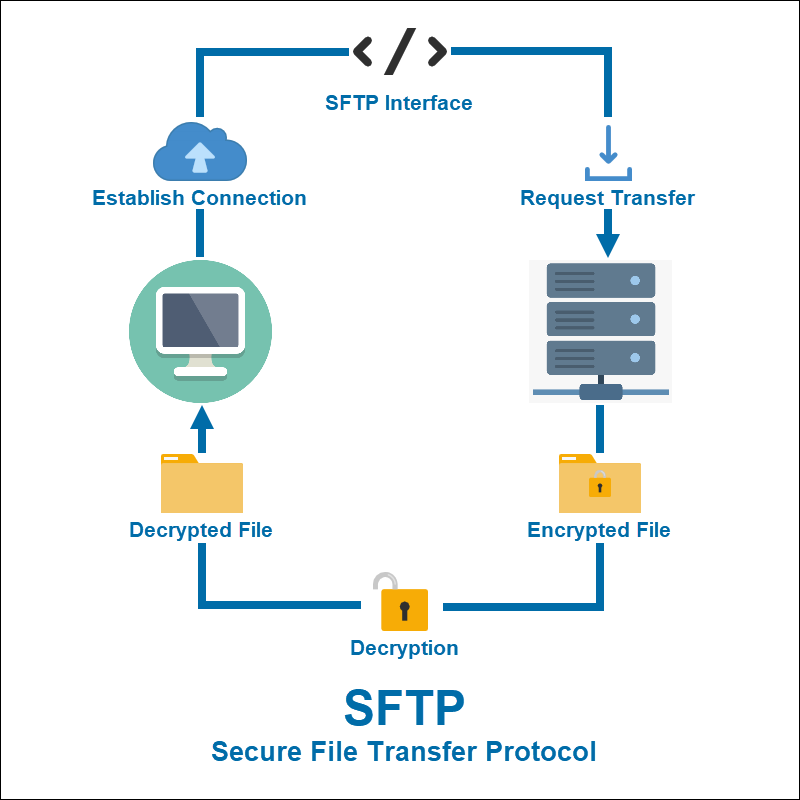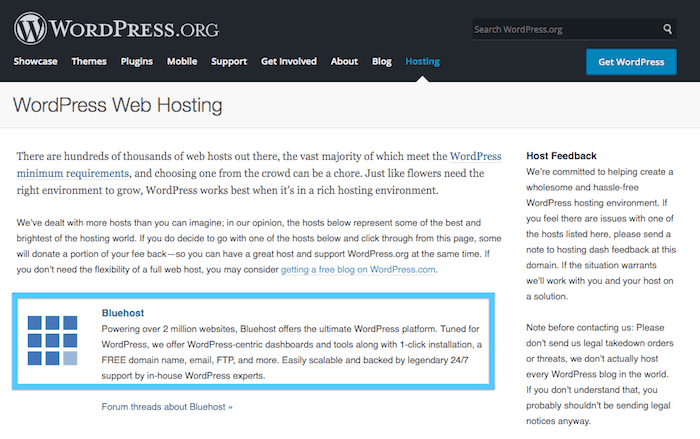
SSL is the Secure Sockets Layer. This cryptographic protocol allows a website server to encrypt and send data over an internet connection. It also stops information from being intercepted and tampered in the middle or a connection by a unauthorized third party.
HTTP is the standard hypertext transfer protocol that is used for websites to communicate with browsers and other servers on a network. It has been around since years and allows information to be communicated between a client and an end user. It achieves this by dividing up data packets, which are then transferred. This can cause problems for websites, as hackers could sniff out the data packets to read the information they contain.
SSL protocol allows the transfer of sensitive information between a webserver and a browser. For example, credit card numbers. It encrypts data so only the computer that is receiving it can decipher. This protects the privacy of your private data from unauthorized parties, and it is often used in e-commerce transactions as well.

To use the SSL protocol a webserver must create a public-key certificate. This certificate needs to be signed and verified by the certificate authority, so that your web browser knows it's reliable. The web server then displays a green padlock or padlock icon in the address bar of your browser, which indicates that it is using SSL.
There are various types of SSL certificates available to protect your website. These include Domain Validated (DV), Organization Validated (OV) and Extended Validation (EV). The functions of these three are slightly different, but the basic level required for verification is the same.
DV is the most basic certificate type, and it requires the website owner to prove that they are in control of the site's domain name. As it does not confirm the identity the owner of the website, this certificate is not suitable. This is also the cheapest of the three options.
Organization Validated certificates are more advanced and provide a higher level of protection for businesses. They are typically required by banks, companies that process sensitive data and credit card providers. These certificates require businesses to verify their identity by a series or verification procedures. They are also considered more secure than digital certificates.

They are available in a range of price points, and you can choose the one that is right for your business. They also offer a variety of other benefits, such as better search engine rankings and increased visitor confidence.
SSL Certificates help to maintain the reputation of a website and can ensure its visitors that it is reliable and honest. SSL Certificates are a good tool to show customers, both current and future, that you care for their security and respect their privacy.
Websites collect lots of data. Therefore, it is essential that they protect private information about their users. This is true, especially if websites accept credit card numbers and passwords. Keeping these details safe can make the difference between making or losing sales, and it's something that every website should be doing.
FAQ
Is it more likely to be hired as a web developer if I have a good portfolio?
Yes. It is important to have a portfolio when applying for web design or development jobs. Portfolios should showcase examples of your skillsets and experience.
A portfolio typically includes samples from your past projects. These can be anything that shows off your skill set. Portfolios should contain everything, from wireframes, mockups, logos and brochures to websites, apps, and websites.
Do I choose WordPress or a web builder?
Start small to create a strong web presence. If you have enough time and resources, build a site. But if you don't have these resources yet, starting with a simple blog might be the best option. As you develop your website design skills, you can always add additional features.
You should first set up your primary domain before you begin building your first website. This will provide you with a point of reference when you publish content.
What is the cost of building a website?
The answer to this question depends on what you want to accomplish with your website. Google Sites may not be required if you simply want to provide information about yourself or your company.
But if your goal is to attract visitors to a website, it's likely that you'll need to invest in something more robust.
A Content Management System (like WordPress) is the best solution. These programs let you create a website with no programming skills. The sites are hosted by third-party businesses, so there is no risk of your site being hacked.
Squarespace, a web design service, is another option. The plans range from $5 per month up to $100 per month depending on what content you want to put on your site.
What Is Website Design Software?
Web design software is used to create web pages and other digital media by graphic artists, photographers and illustrators.
There are two main types: cloud-based or desktop software. Desktop apps can be installed on your local computer. They also require that you install additional software. Cloud-based applications are hosted on the internet. This makes them great for mobile users.
Desktop Applications
Although desktop apps offer more features than cloud-based applications, they are not always required. Some people prefer working exclusively on a desktop app, as they find it easier. Some people like the same tool no matter whether they're working on a computer or a smartphone.
Cloud-Based Solutions
Web designers who wish to save time or money should consider a cloud-based option. These services allow you access any type of document to be edited from anywhere on the internet. You can use your tablet to work while you wait for your coffee brew.
If you decide to use a cloud service, you will still need a license. You will not need additional licenses to upgrade to a higher version.
These programs are available for web page creation if you have Photoshop or InDesign, Illustrator, and other Adobe products.
Statistics
- Is your web design optimized for mobile? Over 50% of internet users browse websites using a mobile device. (wix.com)
- Did you know videos can boost organic search traffic to your website by 157%? (wix.com)
- At this point, it's important to note that just because a web trend is current, it doesn't mean it's necessarily right for you.48% of people cite design as the most important factor of a website, (websitebuilderexpert.com)
- In fact, according to Color Matters, a signature color can boost brand recognition by 80%. There's a lot of psychology behind people's perception of color, so it's important to understand how it's used with your industry. (websitebuilderexpert.com)
- It's estimated that chatbots could reduce this by 30%. Gone are the days when chatbots were mere gimmicks – now, they're becoming ever more essential to customer-facing services. (websitebuilderexpert.com)
External Links
How To
What is website Hosting?
Website hosting is the place where visitors go to visit a website. There are two types:
-
Shared Hosting - This is your cheapest option. Your website files reside on a server owned by someone else. Customers who visit your website send their requests via the Internet over to that server. The request is sent to the server's owner who then passes it on to you.
-
Dedicated hosting - This is the most expensive option. Your website is only accessible from one server. Your traffic is private because no other websites have shared space on this server.
Most businesses choose shared hosting because it's less expensive than dedicated hosting. Shared hosting allows you to have your website run by the company who owns the server.
There are pros and disadvantages to each option. Here are the differences:
Sharing Hosting Pros
-
Lower Cost
-
Easy to Setup
-
Frequent Updates
-
It can Be Found On Many Web Hosting Companies
You can get shared hosting for as low as $10 per monthly. Remember that shared hosting usually comes with bandwidth. Bandwidth is the data transfer speed that you have over the Internet. Even if only you upload photos to your blog or website, high-volume data transfers may incur additional charges.
You'll soon realize why your old host cost so much once you get started. Most shared hosts don't offer any customer support. Although they will help you set up your site occasionally, you are on your own once you have done that.
Look for a provider who offers 24/7 phone support. They will help you deal with any issues that arise while your sleeping.
Cons of dedicated hosting
-
More Expensive
-
Less common
-
Requires Special Skills
With dedicated hosting you will have everything you need to manage your website. You don't need to worry about bandwidth usage or RAM (random access memory).
This means that you'll spend a bit more upfront. You'll soon realize that your business is self-sufficient once it's online. You will become an expert in managing your servers.
Which Is Better for My Business?
This depends on the kind of website that you want. If you only want to sell products, then shared hosting might be the best choice. It's very easy to setup and maintain. A server shared with several other sites means that you will receive frequent updates.
However, dedicated hosting is the way to go if you want to build a community around your brand. Instead of worrying about traffic, you can concentrate on building your brand.
Bluehost.com is a web host that offers both. Bluehost.com provides unlimited monthly data transfer, 24/7 support, free domain registration and a 30-day money back guarantee.